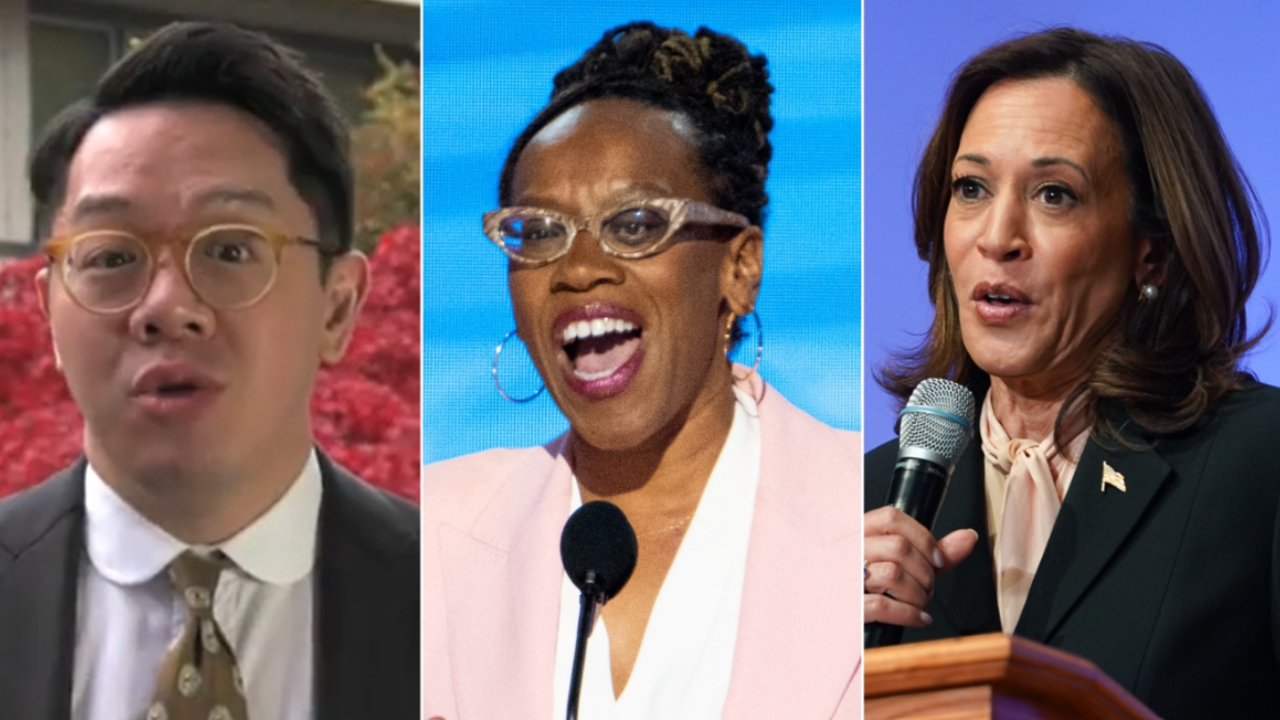Friendship and Controversy: The Ties Between Kamala Harris’s Ally and a CCP Front Group Executive
In the intricate web of political relationships, few connections raise eyebrows quite like those that intertwine American political figures with individuals linked to foreign entities, particularly when those entities are associated with the Chinese Communist Party (CCP). A recent investigation by Fox News Digital has uncovered a notable relationship involving Lateefah Simon, a long-time friend and mentee of Vice President Kamala Harris, and James Chau, the president of the China-United States Exchange Foundation (CUSEF). This connection, which spans over a decade, has sparked discussions about the implications of such ties in the current political landscape.
A Decade of Friendship
Lateefah Simon, who is currently running for the House seat vacated by Rep. Barbara Lee, has been a prominent figure in California politics and social justice advocacy. Her relationship with Kamala Harris dates back to their early days in public service, where they collaborated on initiatives aimed at reforming the criminal justice system. Simon’s recent prominence was highlighted during her keynote speech at the 2024 Democratic National Convention, where she spoke passionately about her experiences and the importance of community engagement.
In early 2022, Chau, who had been involved with CUSEF since 2018, publicly celebrated Simon’s leadership as she transitioned from the Akonadi Foundation to the Meadow Fund. His social media posts reflected a deep personal connection, with Chau expressing admiration for Simon’s work and their shared experiences. Simon reciprocated with warmth, indicating a close bond that transcends mere professional acquaintance.
CUSEF: A CCP Connection
James Chau’s role as president of CUSEF, which he assumed in 2023, has drawn scrutiny due to the foundation’s ties to the CCP. CUSEF is known for its efforts to foster dialogue between the United States and China, but it operates under the auspices of the CCP’s broader strategy to influence foreign perceptions and policies. The foundation’s leadership, including its founder Tung Chee-hwa, has been linked to the CCP’s political apparatus, raising questions about the motivations behind its initiatives.
Chau’s background as a former anchor for China’s state-run media, including China Central Television (CCTV), further complicates his profile. His previous work included interviews with high-ranking CCP officials, including Tung, which positions him as a key figure in the CCP’s outreach efforts. This history has led to concerns about the potential for foreign influence in American political circles, particularly as Simon seeks to elevate her political career.
The Implications of Their Relationship
The friendship between Simon and Chau, while personal in nature, exists within a broader context of political maneuvering and foreign influence. Simon’s candidacy for Congress and her close ties to Harris, combined with Chau’s leadership at CUSEF, create a complex narrative that may impact public perception and voter sentiment. Critics argue that such relationships could compromise the integrity of American political processes, especially when they involve individuals connected to foreign governments.
Moreover, the financial dealings of CUSEF, including substantial payments made to consultants like Julia Wilson, who was tasked with engaging Black communities on behalf of the CCP, raise further ethical questions. Reports indicate that CUSEF has sought to understand and influence African American communities, leveraging relationships with organizations like the Congressional Black Caucus to further its agenda.
Social Media Connections and Public Perception
The social media exchanges between Simon and Chau provide a glimpse into their relationship, characterized by mutual support and affection. These interactions, while seemingly benign, take on a different light when viewed through the lens of their respective roles—Simon as a political candidate and Chau as a representative of a CCP-affiliated organization. The public’s reaction to these connections could be significant, particularly in an era where concerns about foreign influence in American politics are heightened.
Simon’s reflections on her friendship with Harris during the DNC, where she emphasized Harris’s commitment to social justice and community empowerment, further complicate the narrative. While Simon seeks to position herself as a champion for her constituents, the implications of her ties to Chau and CUSEF could overshadow her campaign.
The Broader Context of U.S.-China Relations
As U.S.-China relations continue to evolve, the connections between American political figures and individuals associated with the CCP will likely remain a focal point of scrutiny. The intertwining of personal relationships with political ambitions and foreign influence presents a challenging landscape for candidates like Simon, who must navigate these complexities while maintaining their integrity and commitment to their constituents.
In this charged political environment, the friendship between Simon and Chau serves as a reminder of the intricate dynamics at play in American politics, where personal connections can have far-reaching implications. As Simon campaigns for a significant political role, the public will undoubtedly be watching closely, weighing her qualifications against the backdrop of her associations.
